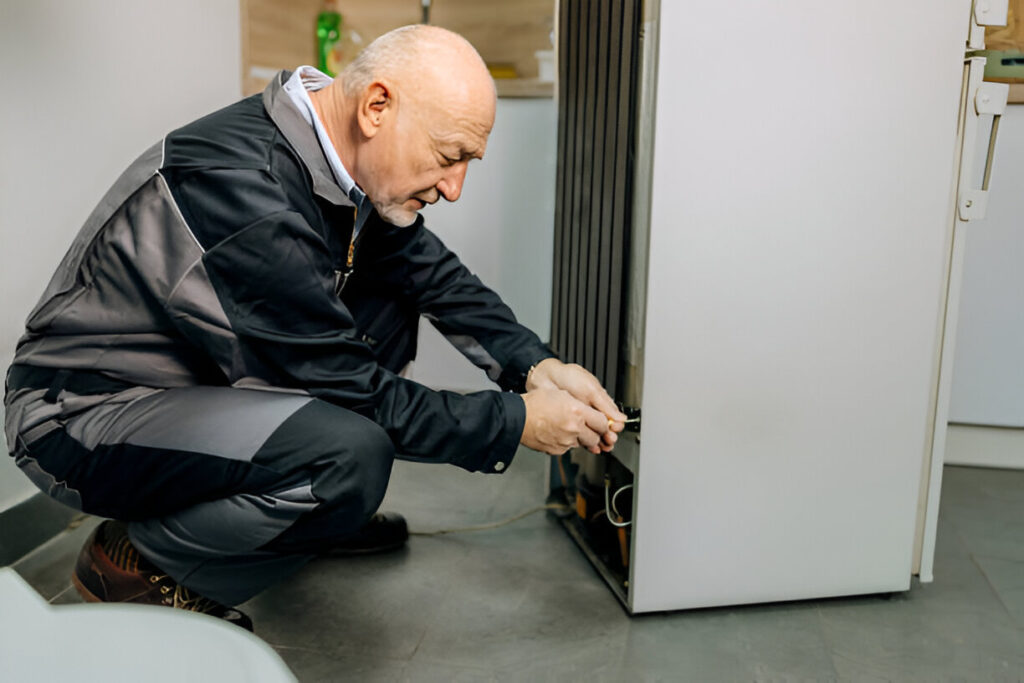As the summer sun blazes down, the last thing anyone wants to deal with is a malfunctioning fridge. Unfortunately, heatwaves can put immense strain on our appliances, leading to potential failures that can disrupt our daily lives. Understanding what happens when your fridge fails during a heatwave can help you prepare and mitigate the consequences.
The Impact of Heat on Refrigeration
Refrigerators are designed to maintain a cool environment for food preservation, but they are not immune to the effects of extreme heat. When temperatures soar, the efficiency of your fridge can plummet. Here’s how:
Increased Workload
During a heatwave, your fridge has to work harder to maintain its internal temperature. The compressor, which is responsible for cooling, runs more frequently and for longer periods. This increased workload can lead to overheating and, ultimately, failure.
Temperature Fluctuations
If your fridge is struggling to keep up, you may notice temperature fluctuations inside. This can be particularly concerning for perishable items. Foods like dairy, meat, and certain fruits can spoil quickly if the temperature rises above 4°C (39°F).
Power Outages
Heatwaves can also lead to power outages, either due to increased demand on the electrical grid or severe weather conditions. If your fridge loses power, the internal temperature can rise rapidly, putting your food at risk. This is when you should call IceCool Trailers for an emergency refrigeration solution.
Signs Your Fridge is Failing
Recognising the signs of a failing fridge can save you from a potential disaster. Here are some indicators to watch for:
Unusual Noises
If your fridge starts making strange noises, such as buzzing or clicking, it could be a sign that the compressor is struggling.
Condensation or Frost Build-Up
Excessive condensation on the outside of the fridge or frost build-up inside can indicate a problem with the door seal or the cooling system.
Warm Spots
If you notice that certain areas of your fridge are warmer than others, it may be time to investigate further.
Spoiled Food
Perhaps the most alarming sign is discovering spoiled food. If you find that your perishables are going bad faster than usual, it’s a clear indication that your fridge isn’t functioning properly.
What to Do When Your Fridge Fails
If you find yourself in the unfortunate situation of a fridge failure during a heatwave, here are some steps to take:
Keep the Door Closed
The first instinct might be to check on your food, but keeping the fridge door closed is crucial. This helps maintain the internal temperature for as long as possible.
Assess the Situation
After a few hours, if the fridge is still not cooling, it’s time to assess the situation. Check for any obvious issues, such as a tripped circuit breaker or a blocked vent.
Use Ice or Coolers
If you have access to ice or coolers, use them to keep your most perishable items safe. This is where portable refrigeration solutions, like those offered by IceCool Trailers, can be invaluable. These trailers provide a reliable way to keep your food and drinks cool, especially during events or gatherings in the heat.
Dispose of Spoiled Food
If the fridge has been out of commission for an extended period, it’s essential to check the contents. Discard any food that has been above 4°C for more than two hours to avoid foodborne illnesses.
Call a Professional
If you suspect a mechanical issue, it’s best to call a professional technician. They can diagnose the problem and recommend the best course of action, whether it’s a repair or a replacement.
Preventative Measures
While it’s impossible to predict when a heatwave will strike, there are steps you can take to minimise the risk of fridge failure:
Regular Maintenance
Regularly clean the coils and check the door seals to ensure they are functioning properly. This can help your fridge run more efficiently, especially during hot weather.
Monitor the Temperature
Invest in a thermometer to keep an eye on the internal temperature of your fridge. This can help you catch any issues before they escalate.
Limit Openings
During a heatwave, try to limit how often you open the fridge door. Each time you do, warm air enters, making it harder for the appliance to maintain its cool temperature.
Consider Upgrading
If your fridge is older and frequently struggles during hot weather, it may be time to consider an upgrade. Modern refrigerators are designed to be more energy-efficient and can handle temperature fluctuations better than older models.
Conclusion
A fridge failure during a heatwave can be a stressful experience, but understanding the signs and knowing how to respond can make all the difference. By taking preventative measures and being prepared, you can protect your food and minimise the impact of a malfunctioning appliance.
In the event of a breakdown, consider portable refrigeration options like IceCool Trailers to keep your perishables safe until the issue is resolved. With a little foresight and preparation, you can navigate the challenges of summer heatwaves with confidence.



